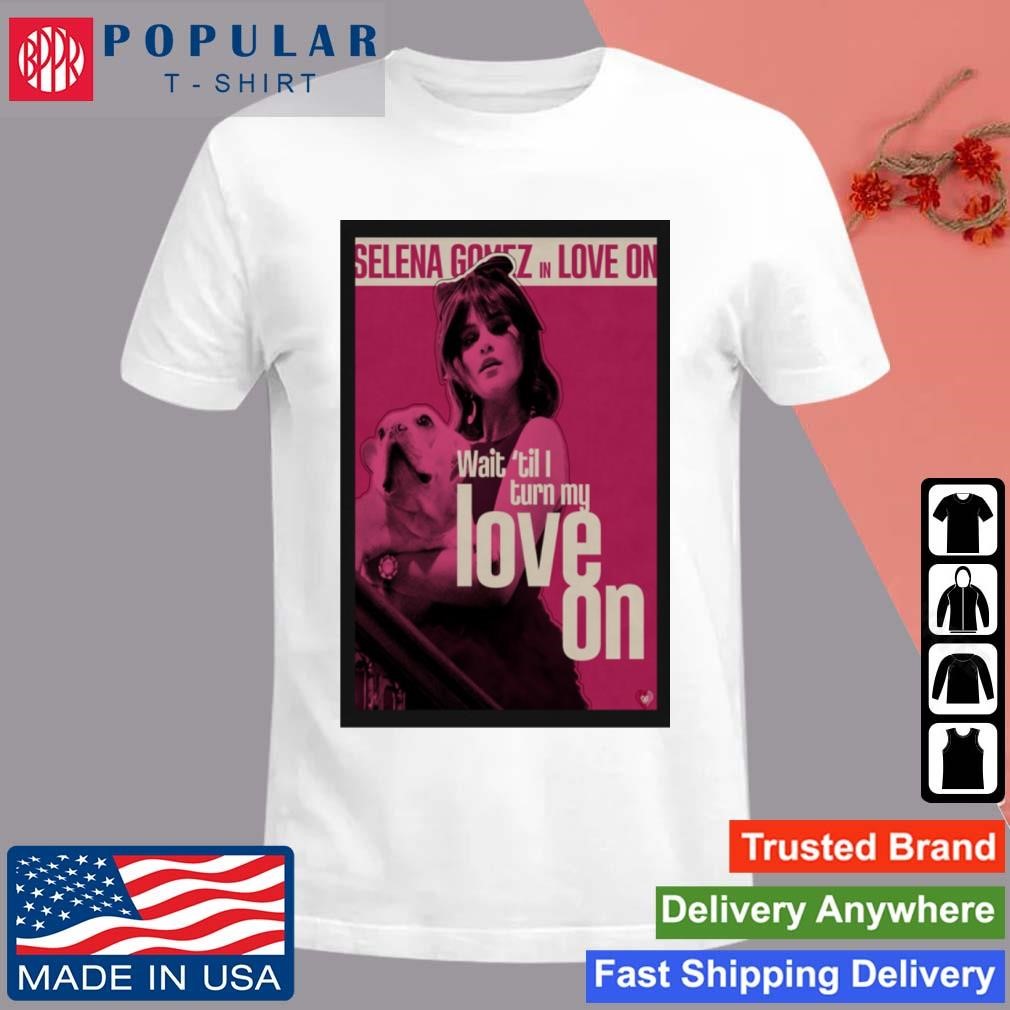Selena Gomez Framed In Love On Wait ’till I Turn My Love On 2024 Shirt
#PopularT-Shirt Fashion LLC It would be reckless to claim that every low-priced good was made by an underpaid laborer, but it’s also just simple math. “It really blows my mind,” Ryan Roche said on a recent call. “I can crunch the numbers, and even with the cheapest fabrics, I don’t understand how it’s possible. Someone is sewing that T-shirt, and they’re being paid pennies.” Maria Stanley, an independent, sustainably-minded designer based in Minneapolis, recalls her own experience working for a fast fashion label a decade ago in Los Angeles: “Retailers would tell us, ‘We want 1,000 of this item for $21 a piece,’ and the factory would quote us $40,” she says. “But eventually, they’d come down to $21. How do you get there. Who is losing out. The fabric is a steady cost, so it’s the workers [losing out].”

#PopularT-Shirt Fashion LLC Fast fashion’s exploitation and hidden supply chains aren’t new revelations, but when we talk about the mistreated workers or the environmental impact of disposable clothes, we’re ignoring a third impact on the consumer. The “race to the bottom” has totally ruined our perception of value; we literally have no idea what our clothes (or food, or anything else) should cost, and low prices have become so normalized that we don’t even second-guess them. In fact, despite statistics that suggest millennial and Gen Z shoppers care deeply about sustainability, the fast fashion market is actually growing—and the clothes are getting cheaper. It doesn’t help that luxury is getting more expensive in tandem. The widening valley between the two is compounding our confusion: If a T-shirt shouldn’t be $5, then it probably shouldn’t be $500, either. But where’s the middle ground. What’s the “right” price for fashion.
Buy this shirt: Selena Gomez Framed In Love On Wait ’till I Turn My Love On 2024 Shirt
Home: Popular T-Shirt
Nhận xét
Đăng nhận xét